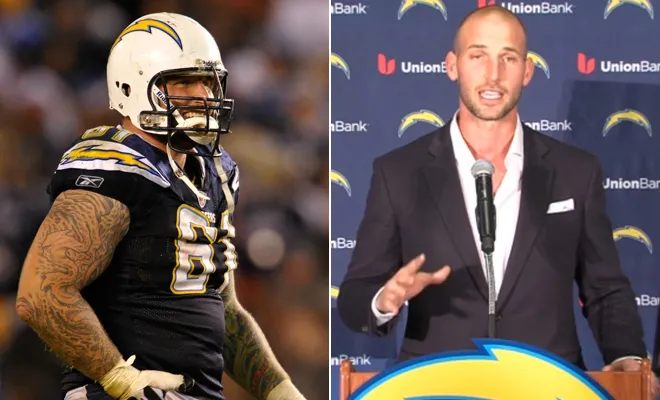Most professional athletes have to maintain a certain body-image and level of competitiveness while performing their sports if they expect to compete at a high level.
Athletes today are required to train for several hours each day if they want to stay in the game. To compensate for this physical demand they must eat a well-balanced, calorie rich diet to keep up their energy level.
Although they are consuming large amounts of food they are burning up lots of energy so that there is an almost net effect in terms of weight gain.
If you played sports in high school or college you probably got into the habit – like many athletes – of eating large meals to keep up your energy levels. In fact your coach probably encouraged you to eat more. Unfortunately, those habits are still engrained in our brains.
Many athletes such as football players, basketball players and swimmers find it difficult to cutback on their eating habits after they stop playing sports and end up gaining excess weight. They pack on useless pounds and develop major health issues as a consequence.
Dominique Wilkins is one such athlete. A nine time All Star basketball player, who was in excellent physical shape while playing, gained extra weight after he stopped and subsequently developed diabetes. You’ve probably seen him doing ads for a popular diabetes drug on television.
For many athletes and non-athletes, especially those who are at risk of developing pre-diabetes or full-on diabetes, it’s time to retrain yourselves to eat proper meals for the amount of energy you are currently using.
Go to – The three-week diet for fast but healthy weight loss information
Read the story of Nick Hardwick and how he is able to adjust to a healthy lifestyle after playing professional sports for many years.
Nick Hardwick’s weight-loss secret is no secret at all
When you eat fewer calories than you burn, you lose weight. That’s not exactly breaking news.But for former Chargers center Nick Hardwick, it’s been hard to get people to understand. Hardwick lost 85 pounds in less than five months after he retired last year, and he’s been subjected to all sorts of questions about whether that radical weight loss is a sign of something nefarious. In reality, Hardwick told Emily Kaplan of TheMMQB.com, it’s been a simple matter of eating less while continuing to put himself through vigorous cardiovascular exercise in retirement.“You want the secret? It’s ultimately this,” Hardwick said. “Reduce your calories to less than what you burn. Are you disciplined enough to go through this day in and day out?”Hardwick said it was always difficult for him to maintain the 300-plus pound weight required of an NFL offensive lineman, and so it was actually a relief not to have to constantly eat to keep that weight up. If you’re eating several thousand calories a day to maintain a bodyweight over 300 pounds, and then you shift down to a standard 2,000-calorie-a-day diet, you’re going to lose weight rapidly. That’s not difficult to understand.
At least, it shouldn’t be difficult to understand. But for some, it’s extremely difficult to understand. Tony Kornheiser of ESPN, in particular, said on television that he suspected Hardwick of using performance-enhancing drugs.
“That hurt,” Hardwick said. “I knew what I went through to get to that point. It wasn’t like I was 300 pounds of muscle before. I had fat on me. Not to mention, I got tested quite frequently. I don’t even know how it’s possible for guys to use steroids in the NFL today.”
Unfair, baseless accusations of PED use make for better TV than simple facts like this: If you eat less, you lose weight. And if you eat a lot less, you lose a lot of weight. That’s what Hardwick has done. He deserves credit, not scorn.
You can view the original here
P.S. When you combine calorie restriction with an intense exercise program consistently, the result has to be weight loss.

